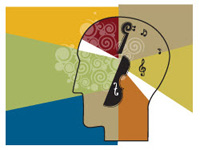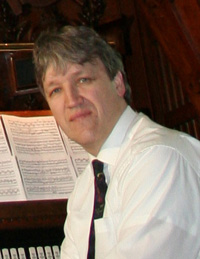Special Reports
2012 News Milestone No. 4
 Medical Researchers Use Music to Revive Dormant Brain Pathways
Medical Researchers Use Music to Revive Dormant Brain Pathways
 At an August symposium sponsored by the Santa Fe Chamber Music Festival, brain researchers, musicians, and music therapists—who don’t normally interact much—revealed breakthroughs and discoveries that left the 200 attendees gobsmacked.
At an August symposium sponsored by the Santa Fe Chamber Music Festival, brain researchers, musicians, and music therapists—who don’t normally interact much—revealed breakthroughs and discoveries that left the 200 attendees gobsmacked.
A star of the event (called “Music, the Brain and Wellness: A Scientific Dialogue”) was Harvard Medical School neuroscientist Gottfried Schlaug, who presented a video of a mute autistic boy, age five, being guided through a series of pitch and rhythm exercises (called auditory-motor mapping training). After about ten sessions, the boy utter "bubbles"—his first words, ever.
 Schlaug is a musician himself and the author of The Brain of Musicians: A Model for Functional and Structural Adaptation. He has also co-authored many tracts such as this one about overlapping brain functions and the use of auditory stimulation techniques to help with tone-deafness, aphasia, and recovery from stroke. In a conference filled with surprises, Wall Street Journal’s Stuart Isacoff cited other “mind-bending” moments.
Schlaug is a musician himself and the author of The Brain of Musicians: A Model for Functional and Structural Adaptation. He has also co-authored many tracts such as this one about overlapping brain functions and the use of auditory stimulation techniques to help with tone-deafness, aphasia, and recovery from stroke. In a conference filled with surprises, Wall Street Journal’s Stuart Isacoff cited other “mind-bending” moments.
What’s the status now, what awaits: While music-related neuroscience is just getting started, music’s effectiveness as a tool to revive or increase the brain’s capacity has long been intuited by musicians and music-lovers. This conference, which organizers say will happen every other year, was a key step in providing the scientific proof of music's efficacy in healing and learning.





 FEATURED JOBS
FEATURED JOBS

 RENT A PHOTO
RENT A PHOTO


